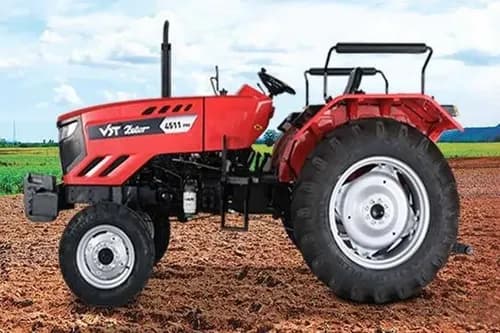Ad
Ad
Vegetable Farm: A Guide To Organic Vegetable Farming
In this article, we will discuss organic vegetable farming, the types of vegetable farming, farm fresh vegetables and vegetable farming equipment used on vegetable farms.

Have you ever wondered where those healthy vegetables and fruits on your plate come from? Many of them are grown on small organic vegetable farms.
Vegetable farming is also known as Olericulture. Olericulture is a branch of horticulture that focuses on the cultivation, production, and harvesting of vegetables and herbs. In this article, we will discuss organic vegetable farming, the types of vegetable farming, and vegetable farming equipment used on vegetable farms.
Vegetable Farm
A vegetable farm is a piece of land where various types of vegetables are grown and cultivated for consumption. Vegetable farms are typically located in rural areas, where there is sufficient land and favorable climate conditions for growing vegetables.
Many vegetable farms are committed to sustainable farming practices. They may use organic farming techniques, and crop rotation, and employ environmentally friendly methods to reduce the use of synthetic chemicals and promote soil health.
Also Read: Wheat Farming: Process and Best Tractors for Wheat Farming
Organic Vegetable Farming
Organic vegetable farming is a special way of growing vegetables. In Organic Vegetable farming, harmful chemicals or pesticides are not used. Instead, they rely on natural methods to keep the plants healthy.
Organic farming is a sustainable agricultural approach that relies on the use of biological fertilizers and natural pest control methods derived from animal or plant waste. It emerged as a response to the environmental degradation and health concerns associated with the extensive use of chemical pesticides and synthetic fertilizers in conventional agriculture.
In short, organic farming represents a type of agriculture that seeks to improve, preserve, and enhance the ecological balance. By prioritizing soil health, biodiversity, and the reduction of harmful chemicals, organic farming not only produces food with fewer synthetic residues but also plays a pivotal role in mitigating the negative impacts of industrial agriculture on the environment.
This environmentally conscious approach maintains soil health, promotes wildlife habitats, and supports the overall well-being of our planet.
Advantages of Organic Farming
The advantages of Organic Vegetable Farming are mentioned below:
- Economical: Organic farming eliminates the need for expensive fertilizers, pesticides, and high-yielding variety (HYV) seeds, reducing production costs.
- Profitable: By using cost-effective local inputs, farmers can achieve a favourable return on their investment.
- High Demand: Organic products have a substantial market demand in India and globally, leading to increased income opportunities, especially through exports.
- Nutritional: Organic products are richer in nutrients, more flavorful, and better for health compared to chemically-treated alternatives.
- Environment-Friendly: Organic farming practices are free from harmful chemicals and fertilizers, preserving the environment and promoting sustainability.
Types of Organic Farming
Organic farming has two types:
Pure Organic Farming: This method excludes all synthetic chemicals. Fertilizers and pesticides used in pure organic farming are sourced from natural substances like cow dung, milk, etc.
Integrated Organic Farming: This approach combines pest and nutrient management to meet ecological needs. It integrates various techniques for sustainable and balanced farming.
Farm Fresh Vegetables
Farm-fresh vegetables provide a direct source of nutritious, vitamins and minerals. By choosing locally grown vegetables, we protect our environment and promote sustainable agriculture. Farm-fresh vegetables also encourage healthier dietary habits.
One of the best things about small vegetable farms is the freshness of the vegetables. Unlike vegetables that travel long distances to reach your local store, farm-fresh vegetables are picked when they're ripe. This means they're more nutritious. Plus, you're supporting local farmers and reducing your carbon footprint.
Types of Vegetable Farming
Vegetable farming is a diverse and essential aspect of agriculture that fulfils the world's ever-growing demand for fresh produce. There are different types of vegetables you can find on small organic farms.
Some farms focus on a variety of vegetables, like carrots, tomatoes, and lettuce. Others specialize in just one type, such as a tomato farm or a cucumber farm. Each type of vegetable has its own unique way of growing and caring for it.
Here are seven types of vegetable farming to consider:
Open-Field Vegetable Farming: Open-field vegetable farming is one of the most traditional and widespread methods. It involves cultivating vegetables in large outdoor areas or fields. This vegetable farming approach requires ample space, proper soil management, and considerations for weather conditions.
Alley Cropping: Alley cropping, also known as intercropping, is a sustainable farming method where vegetables are grown in between rows of trees or shrubs. This approach promotes biodiversity, reduces soil erosion, and enhances the efficient use of land, making it an environmentally friendly choice.
Crop Rotation: Crop rotation is an age-old practice that involves changing the types of vegetables grown in a specific land from season to season. This method helps prevent soil depletion, manage pests, and improve overall soil health.
Hydroponics: Hydroponic farming is a soilless method where vegetables are grown in nutrient-rich water solutions. This technique provides precise control over growing conditions, leading to faster growth and potentially higher yields. Hydroponics is especially useful in urban environments with limited space.
Aquaponics: Aquaponics combines aquaculture (fish farming) and hydroponics. In an aquaponic system, vegetables are cultivated using nutrient-rich water from fish tanks. The waste from the fish provides the necessary nutrients for plant growth, creating a sustainable and symbiotic ecosystem.
Container Gardening: Container gardening is an ideal choice for those with limited outdoor space or poor soil conditions. Vegetables are grown in pots, planters, or containers, making it possible to grow a wide variety of crops on balconies, and even rooftops.
Container Gardens in an Apartment: For people with no outdoor space, container gardens in apartments are a fantastic option. Small containers and vertical gardening techniques allow for the cultivation of vegetables within the confines of an apartment. These miniature gardens can provide fresh produce while bringing greenery into indoor spaces.
Selecting the right type of vegetable farming depends on your available resources, space, and goals.
Vegetable Farming Equipment
To make things easier, farmers use equipment to help them with their work. Small vegetable farms use tools like tractors, ploughs, and irrigation systems. These tools help prepare the soil, plant the seeds, and water the crops. On organic farms, they may also use compost and natural fertilizers to enrich the soil.
Also Read: Types of Agriculture in India
Conclusion
In conclusion, small organic vegetable farms are a fantastic way to get fresh vegetables like spinach, coriander, etc. These farms prioritize eco-friendly methods and provide us with a wide variety of veggies.
They use equipment to make the hard work a little easier while keeping our plates full of tasty and healthy produce. So, next time you enjoy your salad, think about the small farms that made it possible!
Features & Articles
Comprehensive Guide to Tractor Transmission System: Types, Functions, and Future Innovations
Learn about tractor transmission types, components, functions, and selection factors to enhance efficiency, performance, and agricultural productivity....
12-Mar-25 09:14 AM
Read Full NewsModern Tractors and Precision Farming: Transforming Agriculture for Sustainability
Precision farming enhances agriculture by integrating GPS, AI, and modern tractors for sustainable, efficient, and productive farming practices in India....
05-Feb-25 11:57 AM
Read Full NewsTop 10 Tractors Under 30 HP in India 2025: Guide
Top 10 tractors under 30 HP in India offer efficiency, affordability, and power, ideal for small farms with diverse agricultural needs....
03-Feb-25 01:17 PM
Read Full NewsNew Holland 3630 TX Super Plus vs Farmtrac 60 PowerMaxx: Detailed Comparison
Compare New Holland 3630 and Farmtrac 60 tractors by specs, price, and features to find the perfect fit for your farm....
15-Jan-25 12:23 PM
Read Full NewsSwaraj 735 FE Vs Eicher 380 2WD Prima G3: Detailed Comparison
The Swaraj 735 FE and Eicher 380 2WD Prima G3 are reliable, powerful tractors suited for various farming tasks....
14-Jan-25 09:41 AM
Read Full NewsHow to Choose the Perfect Tractor for Your Farm: A Comprehensive Guide
Choose the right tractor by assessing farm needs, horsepower, efficiency, comfort, and budget to enhance productivity and savings....
09-Jan-25 09:43 AM
Read Full NewsAd
Ad
As featured on:


Registered Office Address
Delente Technologies Pvt. Ltd.
M3M Cosmopolitan, 12th Cosmopolitan,
Golf Course Ext Rd, Sector 66, Gurugram, Haryana
pincode - 122002

























